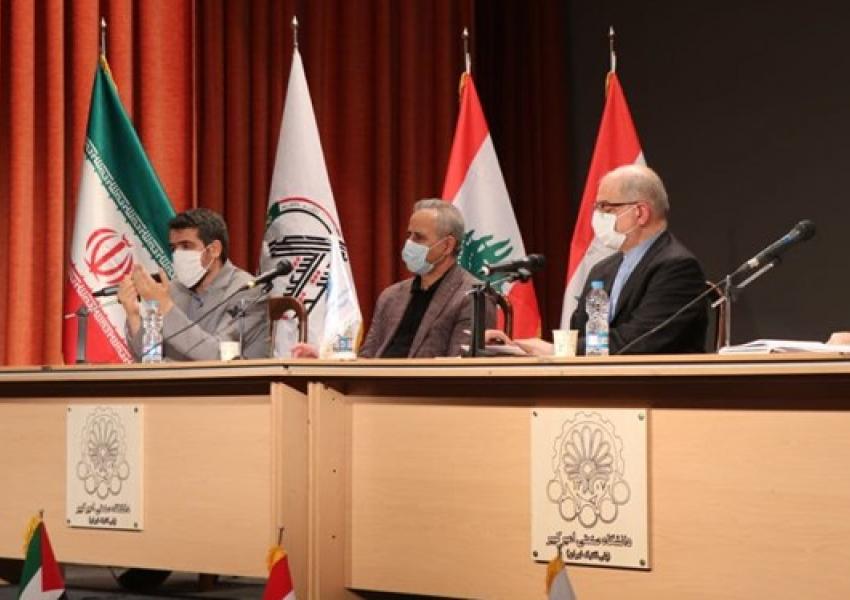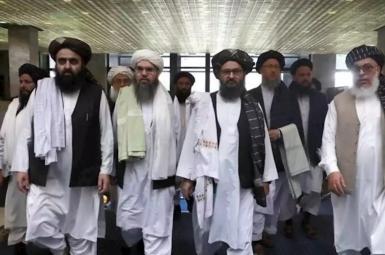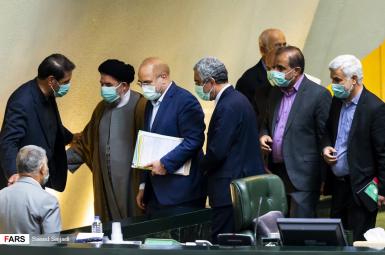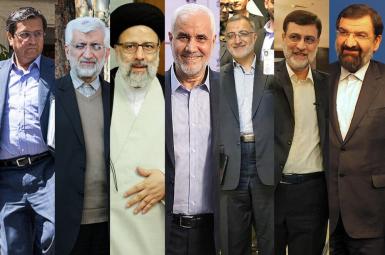
Iran Hardliners In Anti-West Meeting Call for 'Expelling US From Region’
In a conference marked by anti-US sentiments in Tehran, January 1, hardliners marking the death anniversary of former IRGC Qods Force Commander Qasem Soleimani vowed to expel the United States from "trade and energy corridors" in the region.
Speakers putting forth a variety of conspiracy theories accused the United States of creating the Islamic State and conspiring against the Islamic world. They strongly advocated not only expelling the US military from the region but eradicating its economic and cultural presence. Some speakers targeted not only the United States but also Western cultural influences.
The conference entitled "Expelling the US from the Region” started on Friday at the Amir Kabir University in Tehran will continue over the weekend, IRGC-affiliated Fars news agency reported.
Habibollah Zafarian, an official representing the university said the conference is "a first step in expelling the US from the region" as a strategy introduced by Supreme Leader Ali Khamenei.
According to Fars, a former oil minister Rosatn Ghasemi claimed that Soleimani was killed while he was in Iraq as a "messenger of peace" who wanted to put an end to sectarian conflicts in Iraq.
He stressed that Soleimani's death will not the end of resistance in the region. Meanwhile he called for "expelling the US from the region using military diplomacy, public diplomacy and economic diplomacy" without explaining any one of the three concepts.
Hossein Akbari, a former ambassador to Libya claimed that the world owes its security to the resistance movement and the sacrifices made by Soleimani. He said "Americans should go home and let Palestinians go home and leave Islamic states in peace."
‘Resistance movement’ is a term coined by Iran to label its regional allies, such as Syria’s Bashar al-Assad and a host of militant movements, including Lebanon’s Hezbollah.
Another University official, Amir Mohammad Mehrali said that expelling the US from the region would be impossible without taking into account its economic, political, and cultural influence in the region."
Gholamreza Ansari, an adviser to the foreign minister said that "the US is so miserable that it has to negotiate with the Taliban and sign an agreement with them." He warned that the United States' prolonged presence in the region will cost it dearly.
Hamid Hosseini, the former chief of Iran-Iraq Chamber of Commerce, said that the United States prevents the conclusion of any agreement between Iran and other regional countries, adding that the US wishes to widen the gap between Iran and its neighbors. Hosseini called for linking Iraq to Iran via a railway so that Iraq can have access to the Silk Road. His statement contradicts a recent move by China to circumvent Iran in the new Silk Road.
Linking Iraq to Iran via a railway is possibly part of Iran's plan to further facilitate shipment of arms and deployment of forces to Syria to extend its influence all the way to the Mediterranean Sea.
Ali Fekri, the economic planning and policy chief at the Iranian foreign ministry said that expelling the US from the region is a strategic objective rather than a foreign ministry policy to prevent America's pressure on emerging world powers such as China and India.
Reza Mohtashamipour, an economist, alleged that the United States is destroying the governments of Iraq and Afghanistan and is trying to build new governments and nation-states in both countries. He further called for reinforcing Iran's cultural and economic presence in Iraq to strengthen Tehran's foothold in that country.








